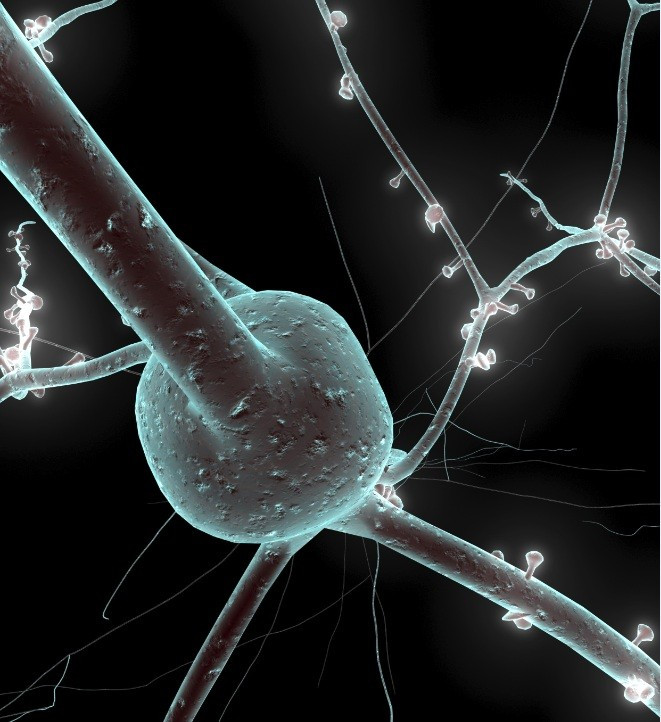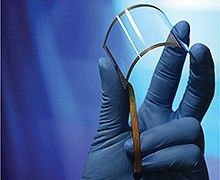The Human Brain Project and Graphene: Vital Science Funding

The European Commission [EC] has recognised the importance of science funding by granting €2bn for two science projects, which are researching brain disease and the "miracle material" graphene.
The Human Brain Project (HBP) and the Graphene Flagship were chosen from 21 projects and the funding they will now receive is a major step forward for scientific research, despite a difficult world economic backdrop.
The two projects are also a key part of Horizon 2020, the EC's research and development programme which has a budget of €80bn between 2014 and 2020.
HBP is instrumental in developing new treatments for Alzheimer's, Parkinson's disease and depression, as it uses supercomputers to understand brain activity and speed up the diagnosis.
Meanwhile, the study into graphene, dubbed "the miracle material" because it is just one atom thick, 100 times stronger than steel and flexible enough to conduct electricity, could radically transform every aspect of our lives.
"The EC is supporting ambitious and risky projects which promise a big return in the long term," the European Union's executive body said in a statement.
Despite the funding being distributed over 10 years, the grant has garnered mixed responses because more than half of it is coming from the EC's research funds and the remainder from EU member countries and the private sector.
Many of those not in the science field have waxed lyrical about the vast amount of money that is being spent on two projects, and those championing a cut to overall science funding in Europe have been frothing at the mouth.
While criticising governmental bodies over science funding is not a new phenomenon, these grants in particular have been hit by comments in the media such as "it kind of says it all about the EU".
Given this backdrop, and the continuing economic problems which blight the Eurozone, it is imperative to relay why funding scientific development of this kind still continues, no matter how bad the world's economy is.
The Question Mark Over Science Funding

In November last year, EU leaders walked away from talks on finding a deal on the bloc's total budget cuts for 2014-2020 but European Council President Herman Van Rompuy, who chaired the summit, proposed cuts in a number of areas, including research and innovation.
However, following the announcement of the two grants, the EC said it was confident it could meet the €2bn worth of payments over the next decade.
The commitment and follow-up statement gives hope that the Horizon 2020 budget will not be slashed dramatically.
"We intend to fulfil our part of this equation [and] we are expecting member states and others to contribute as well," said Neelie Kroes, the vice President of the EC.
Kroes has long been a champion for realising the potential for science and consistently reminds the public of the benefits scientific development can bring to the economy over the longer term.
"Sharing and cooperation are essential to science - no wonder scientists have long sought out tools to help them do this better. Remember it was scientists at Cern who invented the World Wide Web. That was a great gift of science to society: now we can ensure that it helps the scientists back," said Kroes in a July 2012 blog post on the importance of EU-funded scientific research.
Horizon 2020 is the financial instrument implementing the Innovation Union, a Europe 2020 flagship initiative aimed at securing Europe's global competitiveness, and runs during the aforementioned six-year period with an €80bn budget.
Understanding the Bigger Picture

To some €2bn seems like too much to grant at a time when the Eurozone economy has yet to cure its ills.
As IBTimes UK detailed previously, significant scientific budget cuts will harm both its technical research, business innovation and the global economic recovery.
Moreover, what may seem at-face-value esoteric research, much like the experiments being conducted at Cern, the wider impact on society is paramount.
"Like the web, it wasn't intended like that but just look at how it changed my life, my work life, my personal life, all our lives. The Computing Grid and cloud computing and large scale data analysis will make an impact on consumer society in years to come. Also medical equipment will continue to profit from Cern developments, such as particle detectors, like crystal scintillating detectors for PET scanners or wire chambers for radiography," said Dr Barbara Holzer, an accelerator physicist in the Cern Control Centre to IBTimes UK in November last year.
"Then of course cancer treatment facilities, with proton and ion therapies, where more and more facilities are being built and this is very much on the cutting edge of science," she added.
Moreover, the graphene study which will be coordinated by the Chalmers University of Technology in Gothenburg, Sweden, will lead to huge strides in societal development.
Graphene is the thinnest material known to science and the nanomaterial is so thin, it is 'invisible to water'.
The "miracle material" could be used in medical gadgets to carry cancer-fighting drugs into the body, as well as making lighter aircraft, as well as tablets and laptops.
It is no surprise then that the EC thought it was one of the projects that would have the greatest impact on society and the economy.
Meanwhile, the HBP is the first project in the world to develop a large-scale computing and technology infrastructure for the specific purpose of understanding the brain and its diseases, and of translating this knowledge into new computing technology.
This means the future of neuroscience, medicine and computing could all be established through one project.
As with any scientific developments, it has to be understood that scientific progress is one of the key ways to keep the economy going, as well as pushing the boundaries of technology and health.
© Copyright IBTimes 2025. All rights reserved.






















